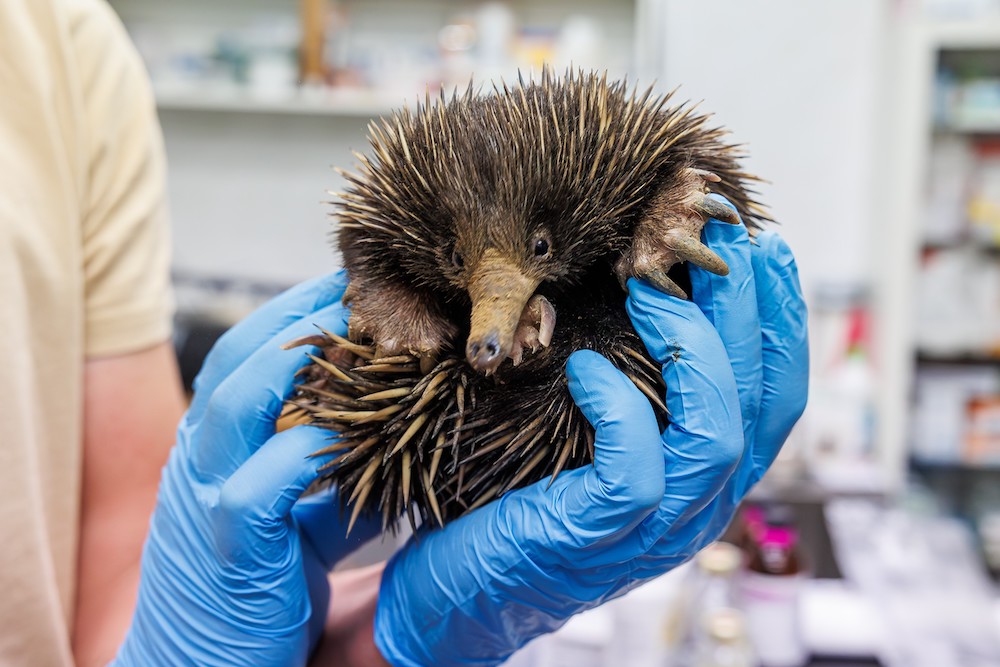
Pýchavka before the first large veterinary intervention last autumn. Photo Miroslav Bobek
I started calling her Pýchavka (Puffball). Pýchavka with y, although for a spiny animal, Píchavka would be more suggestive. (Píchavka is derived from the verb píchat, which means to prickle in English). But in the first video taken by the camera her spines were hardly noticeable, and she really reminded me more of a puffball mushroom than anything else. So – Pýchavka. Our first successfully bred short-beaked echidna puggle.
With the exception of a break of several years we have had echidnas in Prague Zoo for seventy years. They are truly remarkable animals, and although at first glance they may resemble overgrown hedgehogs, in reality they are monotremes, mammals which display many reptilian features. For example, they lay eggs. Breeding echidnas in captivity is, however, extremely difficult – and now we also have succeeded in our zoo.
Pýchavka hatched around mid-December 2022 and left her mother’s poach at the beginning of February 2023. However, I did not break the silence about her existence until New Years Eve, when she was more than a year old (counting from her hatching from the egg). There was a good reason for this. We have had an unfortunate experience with the preceding echidna puggle, which we called Vrána (Crow). It died in November 2021, when it was eight months old. As happens with echidnas in human care, it did not make the transition from mother’s milk to solid food.
After all, the same fate almost hit Pýchavka. She started losing weight during summer. In mid-June she weighed 1,319 grams, and only 1,000 at the early October. It was obvious that something was wrong. Therefore, after consultations with experts from San Diego Zoo, our colleagues put the puggle to sleep, X-rayed and examined her. Her digestive track was full of sand, and she suffered from coccidiosis. She had to be fed through a tube under anaesthesia and given antiparasitic drugs. Of course, it is easy to write it, but much harder to do it… And this extraordinarily demanding procedure had to be repeated four times! The puggle’s weight dropped as far as to 870 grams, however, step by step it was possible to get rid of the sand in her digestive track and suppress the coccidia infection. In the end – after several month without eating by herself! – her appetite came back, and she started gaining weight.
At the last weighing Pýchavka had already 1,605 grams. Her breeding was successful only thanks to an extraordinary effort of her keeper David Vala, the vet Roman Vodička and the curator Pavel Brandl. I think, they are the ones who should chose her final name.

